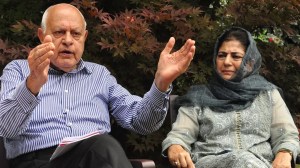Qaeda-Iraq link US cited is tied to coercion claim
The Bush administration based a crucial prewar assertion about ties between Iraq and al Qaeda on detailed statements made by a prisoner whil...

The Bush administration based a crucial prewar assertion about ties between Iraq and al Qaeda on detailed statements made by a prisoner while in Egyptian custody who later said he had fabricated them to escape harsh treatment, according to current and former government officials.
The officials said the captive, Ibn al-Shaykh al-Libi, provided his most specific and elaborate accounts about ties between Iraq and Al Qaeda only after he was secretly handed over to Egypt by the United States in January 2002, in a process known as rendition.
The new disclosure provides the first public evidence that bad intelligence on Iraq may have resulted partly from the administration’s heavy reliance on third countries to carry out interrogations of Qaeda members and others detained as part of American counterterrorism efforts. The Bush administration used Libi’s accounts as the basis for its prewar claims, now discredited, that ties between Iraq and al Qaeda included training in explosives and chemical weapons.
The fact that Libi recanted after the American invasion of Iraq and that intelligence based on his remarks was withdrawn by the CIA in March 2004 has been public for more than a year. But American officials had not previously acknowledged either that Libi made the false statements in foreign custody or that Libi contended that his statements had been coerced.
At the time of his capture in Pakistan in late 2001, Libi, a Libyan, was the highest-ranking Qaeda leader in American custody. He was initially held by the US military in Afghanistan, and was debriefed there by CIA officers, according to the new account provided by the current and former government officials. But despite his high rank, he was transferred to Egypt for further interrogation in January 2002 because the White House had not yet provided detailed authorization for the C.I.A. to hold him.
While he made some statements about Iraq and Al Qaeda when in American custody, the officials said, it was not until after he was handed over to Egypt that he made the most specific assertions. —NYT





- 01
- 02
- 03
- 04
- 05


























